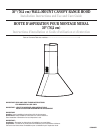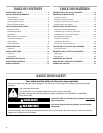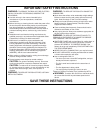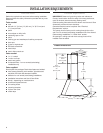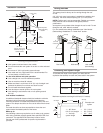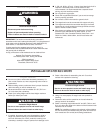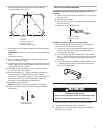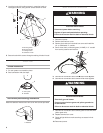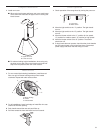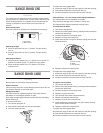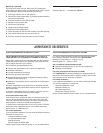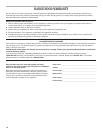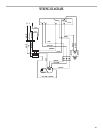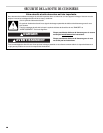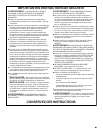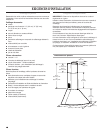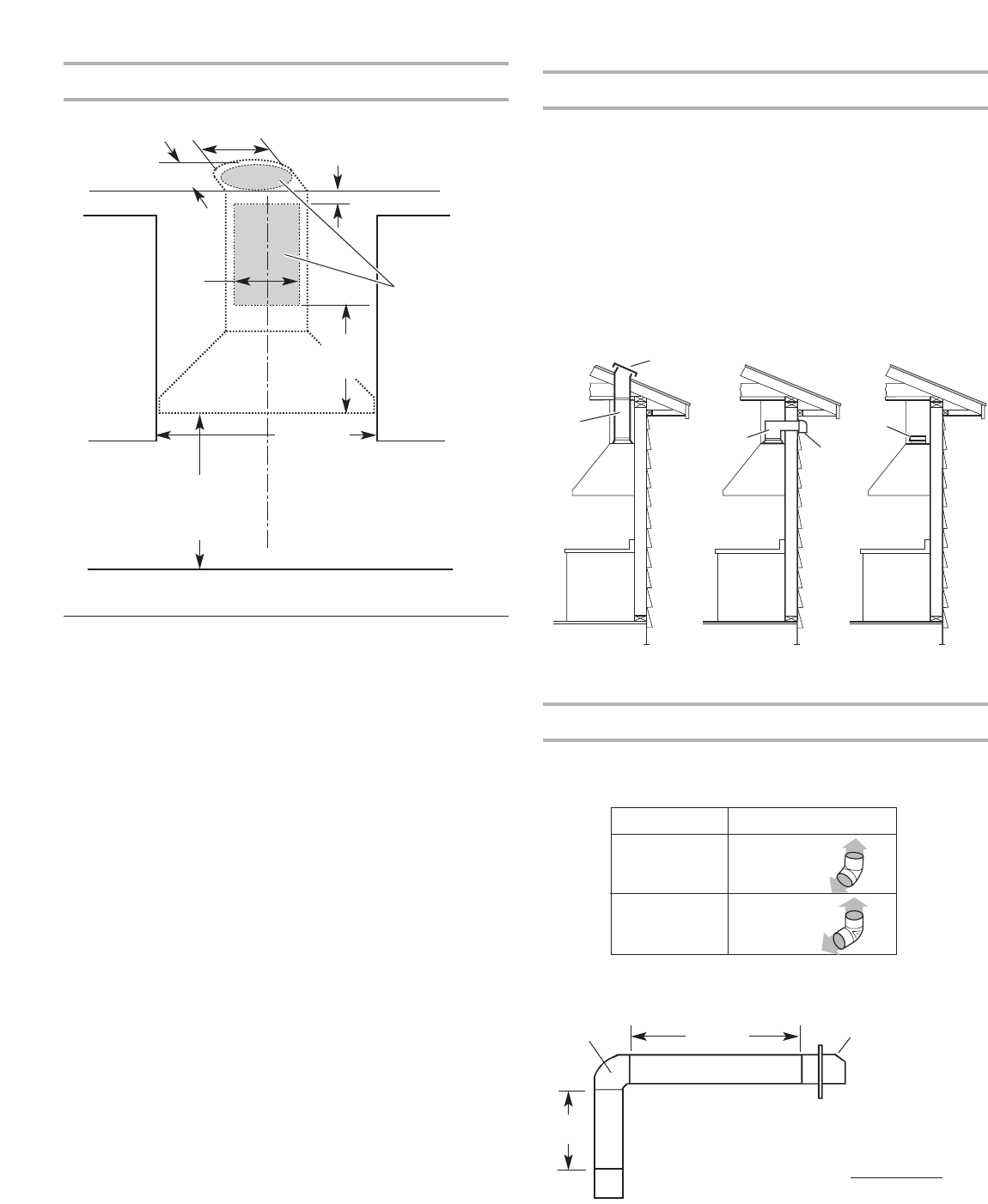
5
30" to 36"
(76.2 cm to 91.4 cm)
bottom of canopy to
cooking surface
vent and power
supply cable entry
location
16"
(40.6 cm)
min.
7"
(17.8 cm)
7"
(17.8 cm)
side
cabinet
side
cabinet
7" (17.8 cm) max.
2" (50.1 mm)
min.
30" (76.2 cm)
minimum
centerline
Installation Clearances
Venting Requirements
■ Vent system must terminate to the outside.
■ Do not terminate the vent system in an attic or other enclosed
area.
■ Do not use 4" (10.2 cm) laundry-type wall caps.
■ Use metal vent only. Rigid metal vent is recommended. Do
not use plastic or metal foil vent.
For the most efficient and quiet operation:
■ Use a straight run or as few elbows as possible.
■ Use no more than three 90° elbows.
■ Make sure there is a minimum of 24" (61 cm) of straight vent
between the elbows if more than one elbow is used.
■ Do not install two elbows together.
■ Use duct tape to seal all joints in the vent system.
■ Use caulking to seal exterior wall or roof opening around
the cap.
Cold weather installations
An additional backdraft damper should be installed to minimize
backward cold air flow and a nonmetallic thermal break to
minimize conduction of outside temperatures as part of the vent
system. The damper should be on the cold air side of the thermal
break.
The break should be as close as possible to where the vent
system enters the heated portion of the house.
Make-up air
Local building codes may require the use of make-up air systems
when using ventilation systems greater than specified CFM of air
movement. The specified CFM varies from locale to locale.
Consult your HVAC professional for specific requirements in
your area.
Venting methods
This canopy hood is factory set for venting through the roof
or wall.
A 6" (15.2 cm) round vent system is needed for installation (not
included). The hood exhaust opening is 6" (15.2 cm) round.
NOTE: Flexible vent is not recommended. Flexible vent creates
back pressure and air turbulence that greatly reduces
performance.
Vent system can terminate either through the roof or wall. To vent
through a wall, a 90° elbow is needed.
For non-vented (recirculating) installations see “Non-Vented
(Recirculating) Installations” in “Install Vent” section.
Calculating Vent System Length
To calculate the length of the system you need, add the
equivalent feet (meters) for each vent piece used in the system.
Maximum equivalent vent length is 35 feet (10.7 meters).
Roof venting
roof cap
wall
cap
6"
(15.2 cm)
round vent
Wall venting Non-vented
(recirculating)
6"
(15.2 cm)
round vent
deflector
90° elbow
wall cap
1 — 90° elbow = 5 ft. (1.5 m)
8 ft. (2.4 m) straight = 8 ft. (2.4 m)
1 — wall cap = 0 ft. (0 m)
system length = 13 ft. (3.9 m)
6 ft. (1.8 m)
2 ft.
(0.6 m)
Example vent
system
Vent piece 6" (15.2 cm) round
45° elbow 2.5 feet
(0.8 m)
90° elbow 5.0 feet
(1.5 m)



